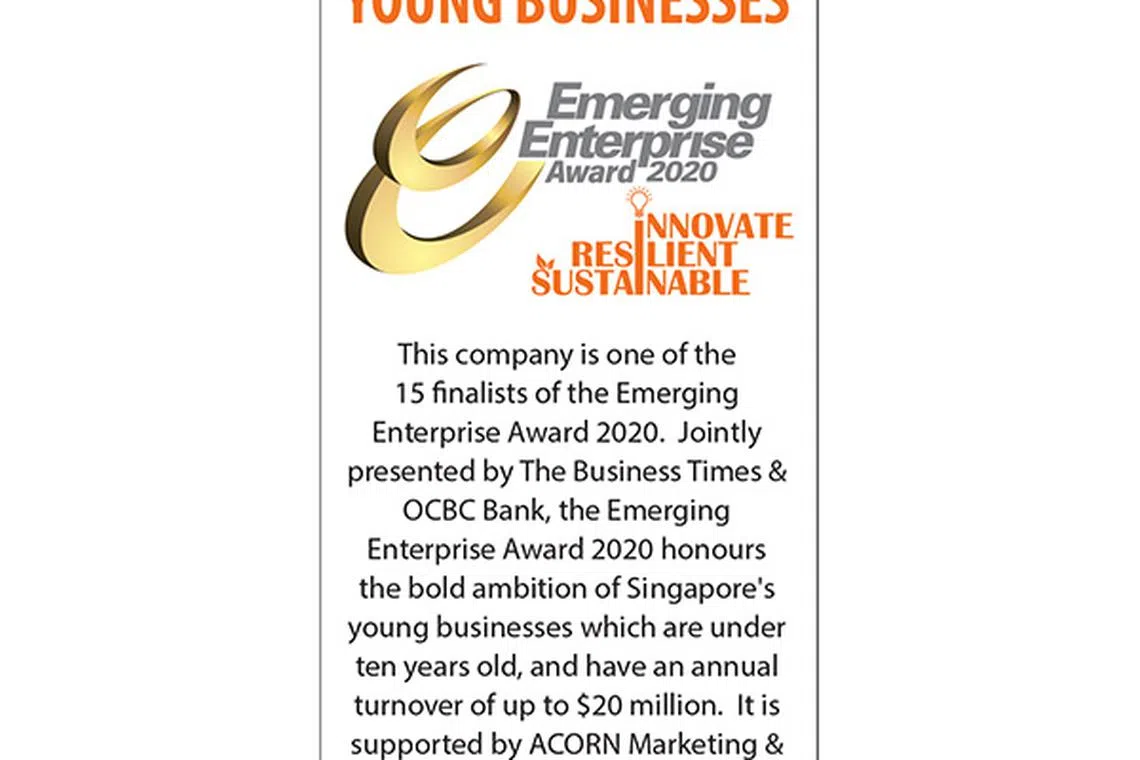Ucare.ai's systems can predict if you have Covid-19
It can also alert people before they fall ill, and how much hospital bills might total up.
IF ALGORITHMS can be used to predict the types of shows that someone enjoys, or the gadgets consumers buy, could it also alert people before they get sick and even how much their hospital bills might be?
Homegrown medtech startup Ucare.ai has come up with a system that can do just that.
On top of that, in recent months, co-founders Christina Teo and Neal Liu have built another model with the same risk algorithms, to predict if a person is at a higher risk of Covid-19 infection.
The program - which Ms Teo said has already reduced swab test costs for its clients by more than half and increased testing capacity by more than five times - groups those tested into different risk categories based on factors such as their health, social patterns, and occupations.
Each group has an average of five people, and all swabs from the group will be pooled for a single Polymerase Chain Reaction test.
The algorithm also identifies which individuals are most susceptible, for further tests to be conducted separately. It has a specificity rate of over 96 per cent, according to Ms Teo.
Navigate Asia in
a new global order
Get the insights delivered to your inbox.
New deal
This year, the startup has also clinched a "multi-million dollar deal", to develop a claims analytics system for the Ministry of Health.
This project will use Ucare.ai's machine learning systems to detect over-servicing, over-charging, fraud as well as possible abuse cases in outlier medical claims.
"This can allow timelier approval for validated claims," said Ms Teo.
Encouraged by the uptick in demand for its products, Ucare.ai is now on the offensive and looking to expand overseas and strengthen its team. There are plans to raise a series B funding round next year, said Ms Teo.
So far, the startup has raised US$6.2 million in equity. It reported a net loss after tax of S$994,000 in 2019, widening from a S$961,000 net loss a year prior. Revenue rose 18.2 per cent to S$396,000.
Its latest valuation - from a series A round in mid-2018 - stands around US$43.5 million, according to venture investment database VentureCap Insights.
Investors in the round include global venture capital firm Walden International, insurer Great Eastern, law firm WongPartnership's startup initiative WPGrowth Ventures, and local businessman Peter Lim.
Plug and play
Enterprises, hospitals or governments can "plug and play" the medtech startup's software into their existing systems, which uses artificial intelligence and data analytics to predict patients' medical bills and potential illnesses in advance; among other things, said Mr Liu, Ucare.ai's chief technology officer.
The platform does this by aggregating the data points it has in its system - such as claims data from insurers and governments, how much operations cost and how complications affect costs -to analyse and predict outcomes based on a patient's profile.
This way, patients might get less of a bill shock after seeing an accurate estimate for their medical treatment, and a hospital can offer guaranteed fixed prices for certain medical procedures, added Ms Teo, the chief executive officer of Ucare.ai.
"It is less likely that there will be a dispute, with greater cost transparency and bill certainty," she added.
The platform is also able to identify points along a patient's life where he can take steps to prevent a disease or manage a chronic illness better, said Mr Liu.
"There are interventive measures that can be taken, and by knowing when an illness might occur for certain profiles, it offers some insight for stakeholders to help prevent a hospitalisation, or improve a patient's chances," he said.
As such, accuracy is key for firms in the space, even more so than being a first-mover, said Ms Teo.
"Unlike many other industries, being the first mover in this space might not give much of a competitive advantage, especially if data is not available and accessible information is not sufficient to yield accurate results," said Ms Teo, who is also the former CEO of businessman Peter Lim's investment unit Catpital.
"We need to look for the right timing, the right place, and the right people," said Ms Teo.
The medtech startup collaborates closely with its clients and partners - such as Parkway Hospitals Singapore, the National University Hospital, the Infocomm Media Development Authority (IMDA), and the Agency for Science, Technology and Research - to collect data (with consent) and improve the accuracy for their models, said Mr Liu.
When asked about the safeguards the startup implements to secure data, he said that it implements two core principles to guide its data security strategy.
The first, is to treat consumer's data as if it was your own or that of your loved ones. The next, is to have a "true north", or to make sure the technology - however agnostic - is being used in the right way, he added.
The IMDA-accredited company often reviews its platform with medical experts to make sure they are on the "right track" ethically, and implements precautions such as encryption to anonymise data. It also limits access to client data internally.
"If you don't build trust in new technologies, like artificial intelligence or machine learning, consumers will not be comfortable with sharing their data," he said.

Decoding Asia newsletter: your guide to navigating Asia in a new global order. Sign up here to get Decoding Asia newsletter. Delivered to your inbox. Free.
Copyright SPH Media. All rights reserved.

